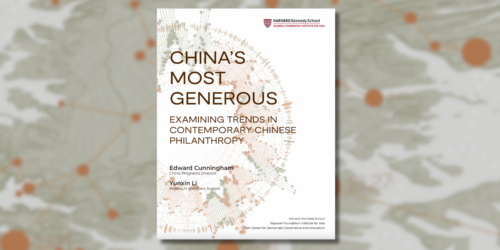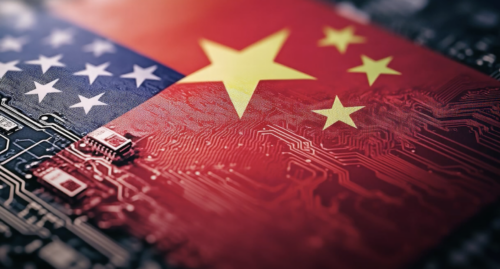TikTok, a short-form video app owned by Chinese company ByteDance, first arrived on the U.S. scene in 2016. While initially regarded as a novel music and dancing app for kids, the platform marked its meteoric rise when it surpassed Facebook, Instagram, Snapchat, and YouTube in mobile downloads during the month of October 2018. Soon, it was on the radar of U.S. policymakers and regulators. As the app’s popularity continued to soar in 2020, largely driven by at-home Americans looking for pandemic-era entertainment, the Trump administration threatened to ban the platform due to data privacy and security concerns. Today, the Biden administration has yet to make up its mind on whether to pursue a similar approach.
“When TikTok’s business exploded in the U.S. and experienced serious run-ins with Washington, D.C. officials from both parties, it was too late for their various initiatives to secure reputational improvements and regain trust,” writes Wenchi Yu, a China and technology policy watcher and Ash Center Nonresident Research Fellow, in a new Ash Center policy brief titled “Risk Mitigation and Creating Social Impact: Chinese Technology Companies in the United States.”
In her report, Yu reviews why Chinese technology companies entering the U.S. market are being met with distrust and security scrutiny. She then details the business strategies of four Chinese technology companies operating in the U.S., including TikTok, and argues that Chinese companies can no longer forestall investing in social impact as they enter the U.S. market. “Unlike their American counterparts, Chinese businesses tend to stay low-key. They are laser-focused on growing business and generating profits and less so on engaging stakeholders, building public trust, or creating value beyond strict business profitability,” explains Yu, who has extensive experience working with Chinese businesses both in China and the U.S. In the context of a tense Sino-American relationship and a growing global demand for corporate social responsibility, she believes that a strategy of “grow first, give later” is untenable.
In advance of the U.S. election last fall, TikTok shared how its content recommendation algorithm works, created new parental controls, and broadened the platform’s fact-checking partnerships. But all of this came after the company was already caught in the political crosshairs and under fire from serious consumer complaints. According to Yu, Chinese technology companies often fail when it comes to corporate transparency, undermining their success. To increase stakeholder engagement, she recommends that these companies increase transparency through clearly disclosing corporate information and policies.
“I think the West in general still has this idea that the Chinese government controls everything in a business,” she says of the need for Chinese businesses to better explain their purpose, value, and operations. “Compounded by a dearth of understanding of the relationship between business and government in China, Chinese companies are often mystified and misunderstood. While a lot of the concerns are legitimate, we also need to understand them better in order to increase our [U.S.] competitiveness and not harm our own national and economic interests.”
“You know, a lot of these private-owned companies are doing good things; a lot of them are investing and creating jobs in the United States. They have the same aspiration of being innovative and truly global businesses,” she adds. That’s why Chinese companies must learn to “tell their own story” before the narrative around the Sino-American relationship takes over.
Yu, proud of her Taiwanese heritage, has spent her career working in both the public and private sectors. Having held positions in the U.S. Department of State and at Goldman Sachs, she has seen firsthand how escalating concerns regarding data privacy, human rights violations, and state security are likely to continue posing challenges to Chinese companies operating in the U.S.
Social impact work and stakeholder engagement can help mitigate these geopolitical issues, but they cannot wholly circumvent them. Data privacy, in particular, is something that Yu knows consumers and policymakers alike are keen to understand. “In autocracies like China and elsewhere, can the government access the data? What can they do with the data?” she asks. “These are key questions and require government solutions with industry input.”
Yet in Washington, Yu sees a lot of political posturing and few real solutions. “Realistically speaking, purely punitive policies toward Chinese technology companies are unlikely to lead the U.S. technology sector to better competitiveness or greater access to the Chinese market,” she affirms.
What would help, according to Yu, is more standardized, global practices to guide businesses as they operate. And for the U.S., this means policymakers and tech companies need to finally hammer out an agreement on how to handle things like data privacy and cross-border data flow. In her report, Yu details five strategies for the Biden administration, ranging from data policy standardization to improving technology understanding and capacity at the federal level.
There is a sense that the real competition between the U.S. and China to lead global technology has just begun. And while Yu maintains deep concerns about the issues facing the U.S. and China, she hopes the tides will turn as both the business and policy communities see the value in a competitive collaboration between the two countries. “Ultimately, I think people want to solve problems,” she says. “People want to have access to these businesses and to global opportunity.”





